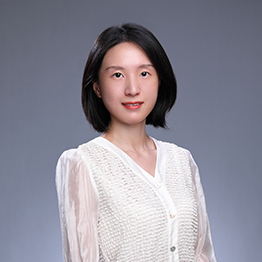

论文
[1] Meng Sun, Minhong Wang, Rupert Wegerif, & Jun Peng (2022). How do students generate ideas together in scientific creativity tasks through computer-based mind mapping? Computers & Education, 176: 104359.
[2] Meng Sun, Minhong Wang, and Rupert Wegerif (2020). Effects of divergent thinking training on students' scientific creativity: The impact of individual creative potential and domain knowledge. Thinking Skills and Creativity, 37: 100682.
[3] Meng Sun, Minhong Wang, & Rupert Wegerif (2019). Using computer-based cognitive mapping to improve students’ divergent thinking for creativity development. British Journal of Educational Technology, 50(5), 2217-2233.
[4] Jiutong Luo, Meng Sun, Pui-sze Yeung, & Hui Li (2018). Development and validation of a scale to measure media multitasking among adolescents: Results from China. Children and Youth Service Review, 95(12), 377-383.
[5] 钱冬明, 孙梦, 庄俭, 杨平, & 余平 (2014). 社区教育网站评价指标体系研究——以上海市社区教育网站为例. 远程教育杂志, (6),49-55.
[6] 罗九同, 孙梦, & 顾小清 (2014). 混合学习视角下MOOC的创新研究:SPOC案例分析[J]. 现代教育技术, 24(7), 18-25.
会议
[1] Meng Sun, Minhong Wang, and Jiutong Luo (2019). Using a divergent thinking map to activate students' creative thinking, Annual Meeting of the American Educational Research Association (AERA), April 2019, Toronto, Canada.;
[2] Meng Sun, Minhong Wang, and Jiutong Luo (2019). Enhancing students' creativity by developing divergent thinking skills: The influence of individuals' knowledge and ability, Annual Meeting of the American Educational Research Association (AERA), April 2019, Toronto, Canada.;
[3] Meng Sun, Jiutong Luo, Dongming Qian, & Xiaoqing Gu (2014). Making sense of online learning behavior: A research on learning styles and collaborative learning data. In Workshop Proceedings of 22nd International Conference on Computers in Education (ICCE 2014), November 2014, Nara, Japan: 265-269.;
